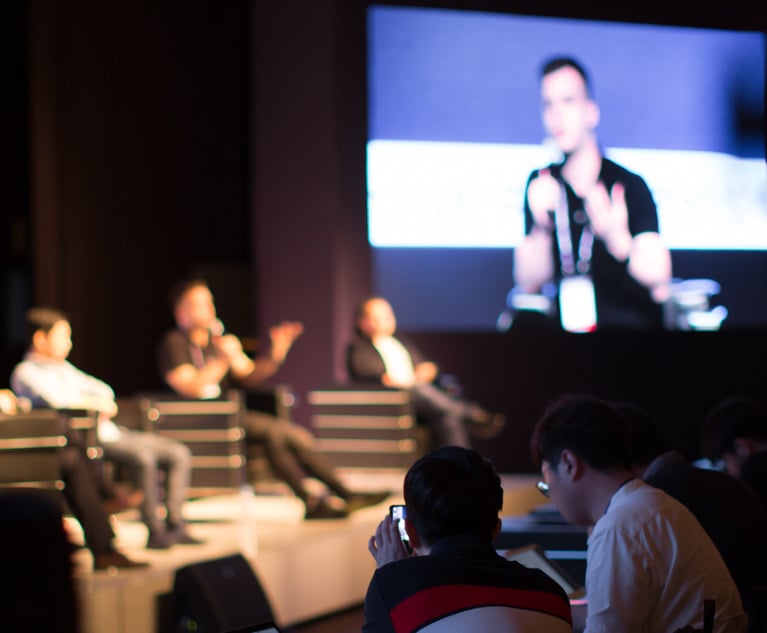Features

Supreme Court Asked Again to Extend Copyright Protection to AI Works
A computer scientist is asking the U.S. Supreme Court to extend copyright protection to works created entirely by artificial intelligence in one of the first cases to reach the justices about the revolutionary technology.
Features

The Shortcomings of the Copyright Office’s Guidance for AI-Assisted Works
AI-assisted artwork poses a simple question: When can an artist using AI tools copyright their work? Early this year, the Copyright Office addressed this issue and rejected the proposition that only prompting an AI model can create a copyrightable work. But their analysis missed that “randomness” for a computer means something entirely different than we generally think, ultimately underselling the amount of control someone can have over the model’s output.
Columns & Departments

UPCOMING EVENT: Copyright Law Year in Review
Copyright Law Year in Review, Dec. 11, 2025
Features

Stephen Thaler Is At It Again — Asks Supreme Court to Extend Copyright Protection to AI Works
A computer scientist is asking the U.S. Supreme Court to extend copyright protection to works created entirely by artificial intelligence in one of the first cases to reach the justices about the revolutionary technology.
Features

Supreme Court Set to Address Procedural Inconsistencies and Claims of Unconstitutional Vagueness Attributed to CAFC
The U.S. Supreme Court is set to commence its term on October 6. Among the cases it will review are several appeals concerning copyright and trademark law. One notable case seeks to address procedural inconsistencies and claims of unconstitutional vagueness attributed to the U.S. Court of Appeals for the Federal Circuit.
Features

Anthropic’s Settlement With Authors May Be Potential Blueprint for Resolving AI Infringement Claims
A federal judge in the Northern District of California granted preliminary approval to a $1.5 billion settlement between Anthropic and a class of book authors who alleged that the artificial intelligence company used their copyrighted works to train its chatbot Claude without their consent. The settlement is the largest copyright settlement of all time, covering 482,460 works and paying authors slightly more than $3,000 per work infringed.
Features

Perplexity AI Sued for Copyright Infringement By Encyclopaedia Britannica and Miriam-Webster
A new lawsuit against Perplexity AI claims responses generated by the artificial intelligence platform violate the trademarks of Encyclopaedia Britannica and Merriam-Webster by attributing false information to their widely esteemed brands. The complaint alleges Perplexity’s generative AI “answer engine” violates the plaintiffs’ copyrights and also cites them as sources of false or incomplete information.
Features

Federal Judge Grants Preliminary Approval of Anthropic’s $1.5 Billion Settlement In Copyright Case
A federal judge in the Northern District of California granted preliminary approval on September 25 to a $1.5 billion settlement between Anthropic and a class of authors who alleged that the artificial intelligence company used their copyrighted works to train its chatbot Claude without their consent. The settlement is the largest copyright settlement of all time, covering 482,460 works and paying authors slightly more than $3,000 per work infringed.
Features

Hidden Details of AI Training Data Set Creates Dilemma for Copyright Holders’ Infringement Claims
How are copyright holders to prove their works were used to train AI models if the details about the vast data sets used for such training are kept secret? That’s a dilemma that surfaced in late August when a federal judge dismissed a claim of direct infringement raised by a group of authors.
Features

Discovery Block In Authors’ Direct Infringement Claim Against Mosaic AI Program
How are copyright holders to prove their works were used to train AI models if the details about the vast data sets used for such training are kept secret? That dilemma surfaced when a California federal judge recently dismissed a claim of direct infringement raised by a group of authors.
Need Help?
- Prefer an IP authenticated environment? Request a transition or call 800-756-8993.
- Need other assistance? email Customer Service or call 1-877-256-2472.
MOST POPULAR STORIES
- The DOJ's New Parameters for Evaluating Corporate Compliance ProgramsThe parameters set forth in the DOJ's memorandum have implications not only for the government's evaluation of compliance programs in the context of criminal charging decisions, but also for how defense counsel structure their conference-room advocacy seeking declinations or lesser sanctions in both criminal and civil investigations.Read More ›
- Use of Deferred Prosecution Agreements In White Collar InvestigationsThis article discusses the practical and policy reasons for the use of DPAs and NPAs in white-collar criminal investigations, and considers the NDAA's new reporting provision and its relationship with other efforts to enhance transparency in DOJ decision-making.Read More ›
- The DOJ's Corporate Enforcement Policy: One Year LaterThe DOJ's Criminal Division issued three declinations since the issuance of the revised CEP a year ago. Review of these cases gives insight into DOJ's implementation of the new policy in practice.Read More ›
- ITC General Exclusion Orders Targeting All Importers Are On the RiseIn recent years, the ITC has issued more General Exclusion Orders (GEOs) than in the past. For importers of products potentially implicated by a requested GEO, the GEO can be a major threat even if the importer is not a respondent in the case.Read More ›
- A Lawyer's System for Active ReadingActive reading comprises many daily tasks lawyers engage in, including highlighting, annotating, note taking, comparing and searching texts. It demands more than flipping or turning pages.Read More ›
